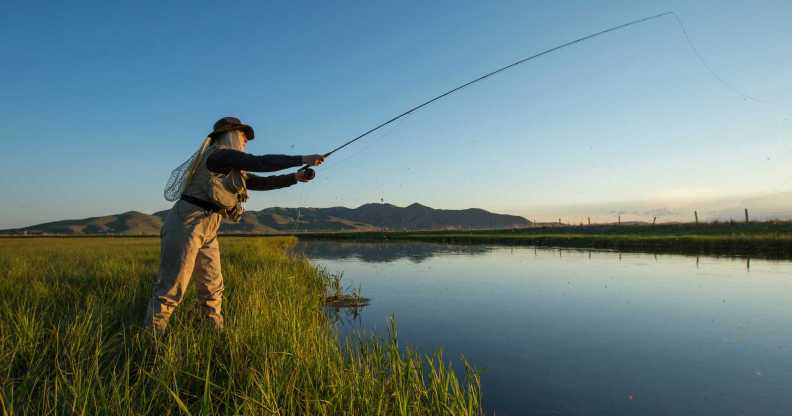England’s ladies angling team refuse to compete, in protest against own trans teammate

The Angling Trust has banned trans women from competing for England in its women’s category. (Getty)
The England ladies angling side will not compete at upcoming world championships after members refused to compete alongside a trans teammate.
Some members of the six-strong squad have refused to take part in November’s Shore Angling World Championship in Sicily because trans woman, Becky Lee Birtwhistle Hodges, was selected to compete.
According to the Angling Trust, the sport’s governing body, the competition will go ahead in November – without England.
The team members claimed that allowing a trans women to compete in the event is “unfair”, despite the trust declaring that trans women have no advantage in the sport.
The team’s refusal to participate comes after former captain Heather Lindfield quit over the issue in June. Several members of the squad also pulled out of the Home Nations Shore Angling Championship to protest against Hodges’ participation.
According to by the Daily Mail, Lindfield said the team was “humiliated” after winning bronze with Hodges in the team in 2018.
‘It wasn’t a nice situation, mainly because all the other countries wouldn’t speak to us,” she is quoted as saying. “The managers wouldn’t speak to our manager. They were all against us. When we went up to collect our medal, nobody clapped and people walked out.
“Although Becky Lee would be an asset to my team, it’s unfair on everyone else. And if you win in a situation like that, you can’t enjoy the victory because it feels like you’ve cheated.”
Lindfield went on to claim Hodges had an unfair increased upper-body strength, which, she claimed, allows an angler to cast further.
“This is an advantage to our team, but we find it totally unfair to other nations,” Lindfield said.
Most UK angling events ‘open’ to all competitors
Currently, the Angling Trust “recognises the gender of an angler based upon their passport, or gender recognition certificate direct from a doctor if no passport is held,” its chief executive, Jamie Cook, said.
A review of the body’s diversity and equality policies, with regards to who can fish in the female category of international teams, is underway, with amendments due to take effect next year.
“The fact is that the vast majority of competitive angling in this country is in ‘open’ competitions, where male, female and transgender anglers have the opportunity to fish head-to-head against each other in the same contest. That also goes for the vast majority of Angling Trust national championships,” Cook said.
“I am confident that whatever the outcome of our review, competitive angling opportunities will continue to exist and the sport will remain inclusive for all, regardless of age, race, gender or sexual orientation.”
A recent report, commissioned by the Canadian Centre for Ethics in Sport, found that trans women do not have any advantage over any other women when competing in elite sport, if existing rules are followed.
However, trans participation in sport remains a contentious issue, with a number of UK governing sports bodies choosing to suspend transgender athletes.
In August, British Rowing banned trans women from competing in its female category at elite level. Its change in policy followed leading bodies such as World Athletics opting to stop transgender women competing in the category that aligns with their gender, while swimming’s FINA introduced strict rules that effectively has the same result.
How did this story make you feel?

